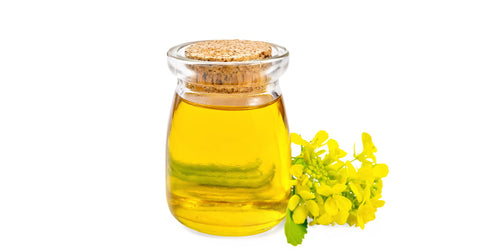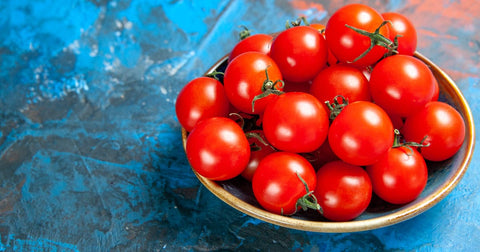Hemorrhoids, those swollen veins in the rectum and anus, can be a painful and irritating experience. While various factors contribute to hemorrhoids, your diet can play a significant role in managing symptoms and promoting healing.
If you're struggling with hemorrhoids, this article will guide you through five foods to avoid, explain why they can worsen your condition, and offer dietary tips for relief. We'll also discuss the connection between food intolerances and digestive health, highlighting the benefits of our food sensitivity test kit.

Understanding Hemorrhoids
Hemorrhoids occur when the veins in the rectum and anus become swollen and inflamed. They can be internal (inside the rectum) or external (around the anus).
Common Symptoms of Hemorrhoids:
-
Pain or discomfort
-
Itching
-
Bleeding, especially during bowel movements
-
Swelling or a lump near the anus
5 Foods to Avoid with Hemorrhoids: Minimizing Irritation
1. Spicy Foods:
Can Spicy Food Cause Hemorrhoids? While spicy food doesn't directly cause hemorrhoids, it can irritate the anal area and worsen existing symptoms. Capsaicin, the compound that gives chili peppers their heat, can pass through your digestive system and cause a burning sensation when it comes into contact with sensitive hemorrhoidal tissue.
2. Alcohol:

Does Alcohol Make Hemorrhoids Worse? Yes, alcohol can dehydrate you, leading to harder stools and increased straining during bowel movements, which can worsen hemorrhoids. Alcohol can also dilate blood vessels, potentially increasing inflammation and discomfort.
3. Processed Foods:
Low Fiber, High Discomfort: Processed foods are often low in fiber and high in unhealthy fats and sodium. This can contribute to constipation, making bowel movements more difficult and straining, which exacerbates hemorrhoids.
4. Salty Foods:
The Sodium Connection: Excess sodium can worsen fluid retention and inflammation, potentially increasing hemorrhoid discomfort.
5. Caffeinated Beverages:
Dehydration Culprit: Like alcohol, caffeine can have a diuretic effect, leading to dehydration and harder stools.
Bleeding Hemorrhoids: Foods to Avoid
If you're experiencing bleeding hemorrhoids, it's crucial to avoid foods that can irritate the digestive tract and worsen bleeding:
-
Spicy foods: Can further irritate the already inflamed tissues.
-
Alcohol: Can thin the blood and potentially increase bleeding.
-
Foods that can cause constipation: Straining during bowel movements can worsen bleeding.
Food Intolerance and Hemorrhoids: The Gut Connection
Food intolerances or sensitivities can contribute to digestive issues like constipation, diarrhea, and inflammation, which can worsen hemorrhoid symptoms.
A food sensitivity test kit can help you identify specific foods that might be triggering your symptoms. By eliminating or reducing these trigger foods, you can potentially alleviate your hemorrhoids and improve your overall gut health.
Key Takeaways:

-
Certain foods and drinks can worsen hemorrhoid symptoms.
-
Avoid spicy foods, alcohol, processed foods, salty foods, and caffeinated beverages.
-
If you experience bleeding hemorrhoids, be extra cautious with your diet.
-
Consider a food sensitivity test to identify potential food intolerances that might be contributing to your digestive discomfort.
Remember, this article is intended for informational purposes only and should not be considered a substitute for professional medical advice. If you have any concerns about your health or are experiencing hemorrhoids, consult a qualified healthcare professional.
Frequently Asked Questions:
1. What foods can I eat to help with hemorrhoids?
Focus on a high-fiber diet with plenty of fruits, vegetables, and whole grains. These foods help soften stool and prevent constipation, reducing strain during bowel movements. Good choices include:
- Prunes
- Apples
- Broccoli
- Lentils
- Oatmeal
2. Can drinking more water help with hemorrhoids?
Yes, staying hydrated is crucial for preventing constipation and softening stool, which can ease bowel movements and reduce pressure on hemorrhoids.
3. I'm experiencing bleeding hemorrhoids. What should I do?
If you have bleeding hemorrhoids, consult a doctor to rule out any underlying conditions and discuss treatment options. In the meantime, avoid foods that can irritate the digestive tract, such as spicy foods and alcohol, and focus on a high-fiber diet to prevent constipation.
4. Can certain spices worsen hemorrhoid symptoms?
Yes, spicy spices like chili powder or cayenne pepper can irritate the anal area and worsen hemorrhoid discomfort. If you're experiencing symptoms, it's best to avoid or limit spicy foods.
5. I suspect a food intolerance might be contributing to my hemorrhoids. How can I find out?
A food sensitivity test can help identify specific foods that might be triggering digestive issues like constipation or diarrhea, which can worsen hemorrhoids. Talk to your doctor about getting tested and exploring dietary changes to improve your gut health.


.png?v=1737390083)
.png?v=1737187409)

